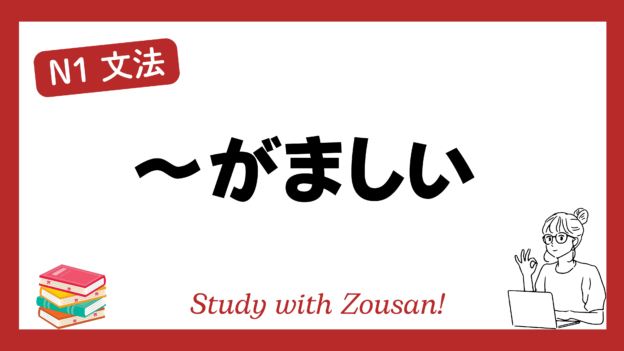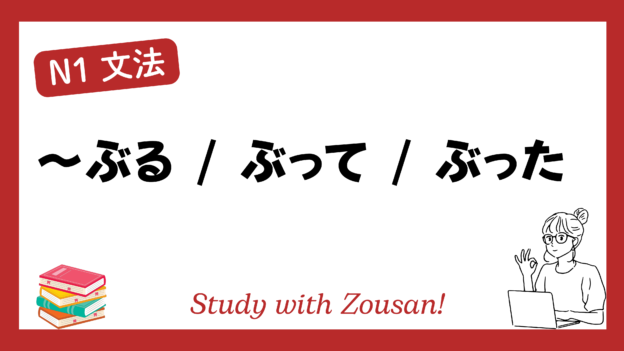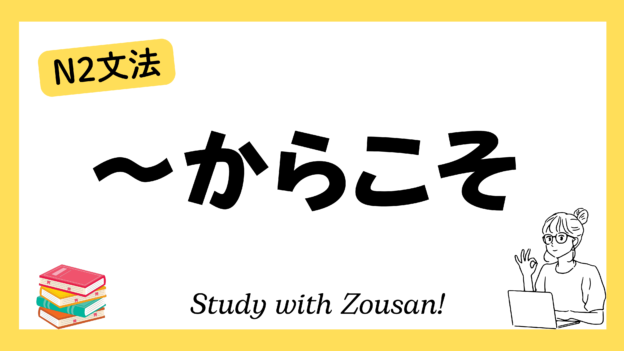N1文法:~がましい
Meaning: “Almost like…”, “Resembling…”
This structure is used to describe an action or state that closely resembles another action or state, often in a negative context or implying that it is inappropriate. It gives the impression that the action seems like something, but isn’t exactly that.
※Note: “~がましい” typically carries a negative nuance, expressing criticism or disapproval of a certain behavior or attitude.
Structure:
| Noun + | がましい |
Example:
-
-
-
🌟 彼の言い方は命令がましい。
(かれ の いいかた は めいれい がましい。)
His way of speaking sounds like an order. -
🌟 彼女はいつも自慢がましい態度をとる。
(かのじょ は いつも じまん がましい たいど を とる。)
She always takes on an attitude that seems boastful. -
🌟 その発言は嫌味がましい。
(その はつげん は いやみ がましい。)
That remark sounds sarcastic. -
🌟 彼の態度は挑戦的がましい。
(かれ の たいど は ちょうせんてき がましい。)
His attitude is almost challenging. -
🌟 彼女の行動はわざとらしがましい。
(かのじょ の こうどう は わざとらし がましい。)
Her actions seem overly deliberate. -
🌟 彼の言い方は、なんだか嘘がましい。
(かれ の いいかた は、なんだか うそ がましい。)
The way he says it sounds kind of like a lie. -
🌟 その笑顔は媚びがましい。
(その えがお は こび がましい。)
That smile seems ingratiating. -
🌟 彼の態度は偉そうがましい。
(かれ の たいど は えらそう がましい。)
His attitude seems arrogant. -
🌟 彼の質問は非難がましい。
(かれ の しつもん は ひなん がましい。)
His question seems accusatory. -
🌟 彼の言葉は脅しがましい。
(かれ の ことば は おどし がましい。)
His words sound threatening.
-
-









